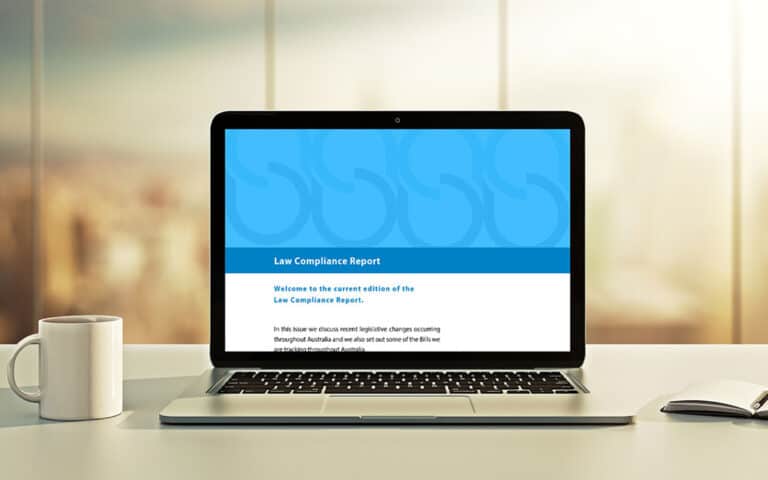This article applies to organisations who employ children.
Child Employment Amendment Act 2022 (Vic)
On 1 July 2023 the Child Employment Amendment Act 2022 (Vic) (the Amending Act) commenced and amended the Child Employment Act 2003 (Vic) (the Act). The Amending Act has amended the Act by making changes to the meaning of employment and clarifying activities which are not considered employment. There are new offences introduced for contraventions of the minimum age for employment, employing children in prohibited employment, contraventions of conditions of a licence, contraventions of the requirement to supervise children in employment and contraventions of the conditions of employment. The Amending Act has also removed the system of permits and introduced a system of licences, as well as amended record keeping obligations for employers. There have also been significant increases to penalties under the Act.
Meaning of employment
The meaning of employment, set out in section 4 of the Act, has been amended to further clarify when a child is engaged in employment. The additions to section 4(2) clarify that a child is engaged in employment if:
- the child performs work in a business, trade or occupation for the benefit of the business or a person involved in the business, trade or occupation; or
- a non-profit organisation for the benefit of the non-profit organisation or a person involved in the non-profit organisation; and
- the child is subject to directions about how the child’s work is performed.
The Amending Act has inserted section 4A into the Act which contains a list of prescribed activities that do not constitute employment for the purposes of the Act. Examples of the prescribed activities include participating in a church, religious service or religious program, participating in a project or entertainment the net proceeds of which are applied for the benefit of a church or any other religious body or an institution that is established for public worship, or participating in a project or entertainment for the benefit or as part of the activities of a school if the child is enrolled at the school and is under the direction or control of the school, among others.
The Amending Act has also inserted section 4B into the Act which clarifies that a person is taken to employ a child and to be the employer of a child if the person engages the child under a contract or the person engages the child to perform work referred to in section 4(2) (as set out above).
New Offences
The Amending Act has introduced a suite of new offences into the Act for employer representatives and nominated officers. Relevantly, employer representative, for an applicant or a licence holder, means a person who is nominated in relation to the licence under section 13(4) or 18AE(3)(d) and nominated officer, for an applicant or a licence holder, means a person who is nominated in relation to the licence under section 13(3) or 18AE(3)(c).
Offences for a nominated officer of a licence holder
Sections 35, 36 and 36A of the Act contain offences for a nominated officer for a licence holder where the licence holder engages in conduct that contravenes the prohibition:
- against employing a child below the minimum age for employment (section 10(3) of the Act);
- against employing a child during school hours (section 11(1) of the Act); or
- against employing children in prohibited kinds of employment (section 12(1) of the Act),
in circumstances where the nominated officer knew of, or knowingly authorised or permitted, the conduct or failed to take reasonable steps to prevent the conduct. The maximum penalty for these offences is 240 penalty units (currently $46,154).
Offences for an employer representative or a nominated officer of a licence holder
Sections 36C, 36D and 36E contain offences for an employer representative or a nominated officer for a licence holder where the licence holder engages in conduct that contravenes:
- the conditions of a licence (section 18(5) of the Act);
- the requirement for an employer to adequately supervise a child who is employed (section 19(1) of the Act); or
- the conditions of employment set out in Division 3 of Part 2 of the Act (section 23(1) of the Act),
in circumstances where the employer representative or the nominated officer knew of, or knowingly authorised or permitted, the conduct or failed to take reasonable steps to prevent the conduct. The maximum penalty for the offences in sections 36C and 36D is 240 penalty units (currently $46,154). The maximum penalty for the offence in section 36E is 120 penalty units (currently $23,077).
Licencing under the Act
Applications and renewals
The Amending Act has replaced the system of permits under the Act with a licensing system. Section 13 has been amended to provide that an application or a licence is to be made to the Wage Inspectorate Victoria (the WIV). The application for a licence must be made in writing and in the form approved by the WIV and satisfy the further requirements set out in section 13. If the applicant is a body corporate there are additional requirements for an application which are centred around nominating an employee or officer who will be responsible for decision making about the employment of children and have responsibility for ensuring compliance with child employment laws and the conditions of the licence.
The Amending Act has inserted section 15 of the Act which introduces the requirement that an applicant for a licence must satisfy the WIV that the applicant is a fit and proper person to employ children.
Further, new section 18AE provides that a licence holder may apply to the WIV for renewal of the licence. An application for renewal must be made before the expiry of the licence and the application must satisfy the further requirements in section 18AE.
Licence conditions
The Amending Act has inserted section 18 of the Act which prohibits a person who employs a child under a licence from contravening the conditions of that licence. A licence may be subject to any conditions determined by the WIV but will include a condition that the licence holder must comply with the child employment laws, and a condition that the licence holder must ensure that there is an employee or officer of the body corporate who is a nominated officer for the licence holder.
Requirement to notify of certain changes
The Amending Act has inserted section 18AD into the Act which requires a licence holder to give the WIV a notice each time the licence holder employs a child after the employment commences. This notice must be in the form and manner approved by the WIV and include certain particulars. Examples of these particulars include the name, date of birth and home address of the child, the name and telephone number of the child’s parent or guardian, the intended workplace of the child and the business, among others.
A licence holder must also give the WIV notice if there are any changes in the information it has provided to the WIV in an application.
Amended record keeping obligation
Section 18B of the Act has been amended to require an employer to keep a written record of the name of any person who supervises a child in the course of the child’s employment and the number of any current WWC clearance for that person. This record must be kept by the employer for a period of 5 years (or as otherwise prescribed) after the person who supervised the child last supervised any child.
Increase to penalties under the Act
The Amending Act has increased penalties significantly throughout the Act. Notably, a maximum penalty of 1,200 penalty units (currently $230,772) in the case of a body corporate or 240 penalty units (currently $46,154) applies for contraventions of the prohibition against employing a child without a licence (section 9 of the Act), the minimum age for employment (section 10 of the Act), the prohibition against employing children during school hours (section 11 of the Act), the prohibition against employing a child in prohibited employment (section 12 of the Act) and the requirement to supervise children in employment (section 19 of the Act).
Conclusion
The Act contains new and amended obligations and offences. organisations should review and, if required, update their policies, processes and systems to reflect the changes. All relevant staff should be made aware of the changes.




